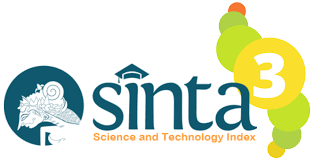The Influence of Gamification on English Vocabulary Retention in Online Learning Platforms
DOI:
https://doi.org/10.53299/jppi.v5i2.1468Keywords:
Gamification, Vocabulary Retention, Online LearningAbstract
The rapid advancement of digital learning technologies has transformed language acquisition, with gamification emerging as an innovative strategy to enhance vocabulary retention. This study aims to examine the impact of gamification on English vocabulary acquisition in online learning platforms by analyzing its effects on vocabulary retention, learner engagement, motivation, and cognitive load. Drawing on theoretical frameworks such as Self-Determination Theory, Cognitive Load Theory, and Engagement Theory, the study also discusses the challenges and limitations of applying gamified methods in vocabulary learning. Gamification elements, including points, rewards, leaderboards, and interactive challenges, have been shown to improve learner motivation, engagement, and retention by creating an immersive and stimulating learning environment. Empirical studies indicate that gamified learning enhances cognitive processing, reduces cognitive overload, and promotes sustained participation. However, challenges such as cognitive distractions, reliance on extrinsic motivation, and variations in learner preferences must be addressed to optimize the effectiveness of gamification. This study highlights the potential of gamified approaches in modern language education while emphasizing the need for well-designed instructional strategies to maximize learning outcomes. Future research should further examine the long-term effects of gamification on vocabulary retention and explore inclusive approaches that cater to diverse learner needs.
References
Abdussamad, H. Z. (2021). Metode penelitian kualitatif. CV. Syakir Media Press.
Akbar, F. F. (2025). Meningkatkan Kemampuan Vocabulary Siswa Melalui Flashcard Key Holder Di Smp Tunas Baru Jin Seung Batam. Jurnal Pengabdian Ibnu Sina, 4(1), 36-43.
Alrashedi, N. T. (2024). The Effects of Gamified Platforms on Enhancing Learners’ Ambition. Journal of Ecohumanism, 3(8), 3393-3403.
Alsawaier, R. S. (2018). The effect of gamification on motivation and engagement. The International Journal of Information and Learning Technology, 35(1), 56-79.
Ananda, N. P. (2024). Using gamification in education: Strategies and impact. Hipkin Journal of Educational Research, 1(1), 1-12.
Ayaz, A., Ozyurt, O., Al-Rahmi, W.M., Salloum, S.A., Shutaleva, A., Alblehai, F., Habes, M., 2023. Exploring Gamification Research Trends Using Topic Modeling. IEEE Access 11, 119676–119692. https://doi.org/10.1109/ACCESS.2023.3326444
Darmayanti, e. a. (2024). Behaviorisme dalam Pendidikan: Pembelajaran Berbasis Stimulus-Respon. Penerbit Adab.
Deci, E. L. (2012). Self-determination theory. Handbook of theories of social psychology, 1(20), 416-436.
Dehghanzadeh, H., 2020. Investigating effects of digital gamification-based language learning: a systematic review* Hossein Dehghanzadeh*.
Ferrer, J., Ringer, A., Saville, K. P., Parris, M.A., Kashin, K. (2022). Students’ motivation and engagement in higher education: the importance of attitude to online learning. High Educ 83, 317–338. https://doi.org/10.1007/s10734-020-00657-5.
Hellín, C. J.-E.-T. (2023). Enhancing student motivation and engagement through a gamified learning environment. Sustainability, 15(19), 14119.
Kelly, J., Sadeghieh, T., Adeli, K., 2014. Peer review in scientific publications: benefits, critiques, & a survival guide.
Kirschner, P. A. (2002). Cognitive load theory: Implications of cognitive load theory on the design of learning. Learning and instruction, 12(1), 1-10.
Korkealehto, K. &. (2018). Enhancing engagement, enjoyment and learning experiences by gamification on an English course for health care students. In Seminar. net: International Journal on Media, Technology and Lifelong Learning (Vol. 14, No. 1). Lillehammer University College., 13-30.
Patra, I. S. (2022). An Investigation of EFL Learners’ Vocabulary Retention and Recall in a Technology‐Based Instructional Environment: Focusing on Digital Games. Education Research International, 2022(1), 7435477.
Purba, A. Z. (2024). Gamifikasi Dalam Pendidikan: Meningkatkan Motivasi dan Keterlibatan Siswa. Maximal Journal: Jurnal Ilmiah Bidang Sosial, Ekonomi, Budaya dan Pendidikan, 1(5), 299-305.
Rachmawati, D. L. (2024). Meningkatkan Penguasaan Kosakata Bahasa Inggris Menggunakan Kartu Flashcard Digital dan Aplikasi Quizlet. Innovative Journal of Community Engagement, 1(1), 22-28.
Sadoski, M. &. (2013). Imagery and text: A dual coding theory of reading and writing. Routledge.
Saleem, A. N. (2022). Gamification applications in E-learning: A literature review. Technology, Knowledge and Learning, 27(1), 139-159.
Seriana, S. &. (2023). Penggunaan Model Experiential Learning dan Media Berbasis Teks serta Visual terhadap Siswa yang Berbahasa Daerah. Literasi: Jurnal Bahasa dan Sastra Indonesia serta Pembelajarannya, 7(1), 55-65.
Srimuliyani, S. (2023). Menggunakan teknik gamifikasi untuk meningkatkan pembelajaran dan keterlibatan siswa di kelas. EDUCARE: Jurnal Pendidikan Dan Kesehatan, 1(1), 29-35.
Wedayanthi, L. M. (2024). Optimalisasi pembelajaran bahasa inggris berbasis gamifikasi dalam implementasi kurikulum merdeka. SELAPARANG: Jurnal Pengabdian Masyarakat Berkemajuan, 8(4), 3959-3965.
Wibowo, H. S. (2023). Pengembangan Teknologi Media Pembelajaran: Merancang Pengalaman Pembelajaran yang Inovatif dan Efektif. Jakarta: Tiram Media.
Downloads
Published
How to Cite
Issue
Section
License
Copyright (c) 2025 Jurnal Pendidikan dan Pembelajaran Indonesia (JPPI)

This work is licensed under a Creative Commons Attribution 4.0 International License.














